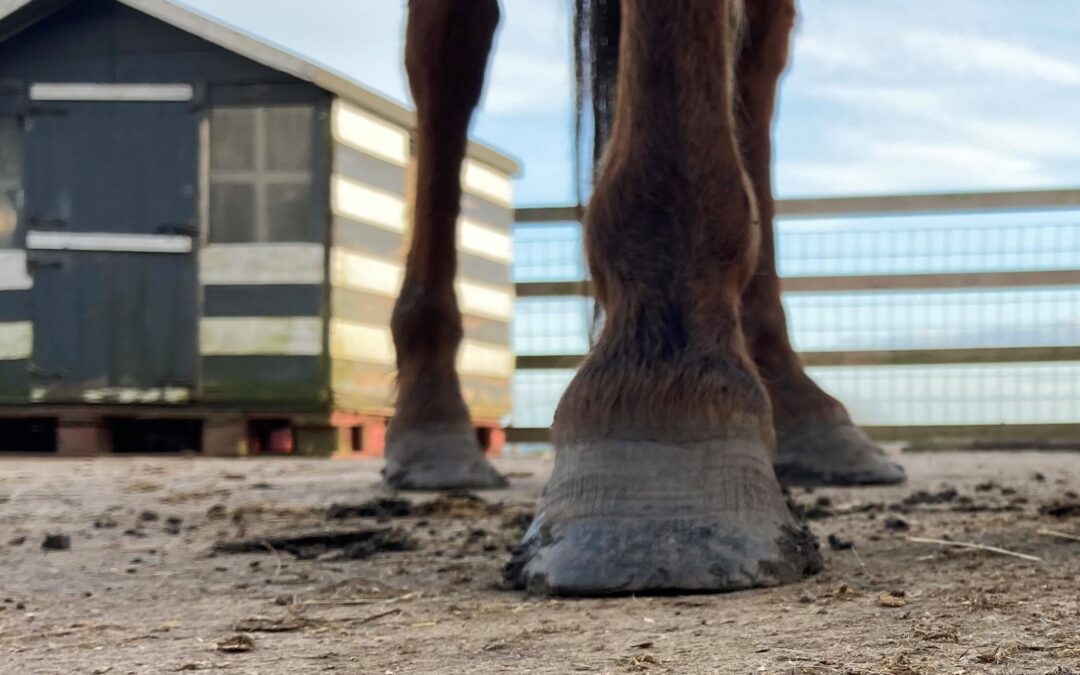We are all very familiar with this saying and it is still true today. The best people to deal with your horses foot health are your farriers. It doesn’t matter if they are shod or unshod, balance of the foot and more so the bones within the foot are vitally important to keeping your horse sound.
Signs of Foot pain:
- Can cause other areas of pain as the animal tries to shift it’s weight away from the front legs onto other areas such as neck, back and hindlimbs
- Unusual muscling or lack of topline
- Riding like a giraffe – we’ve all been there trying to avoid mouthfuls of ear
- Running into fences, when jumping
- Refusing to jump at all
It is important both from a performance point of view and a preservation of the longevity of your riding horse or pony that these imbalances regardless of cause issues way beyond the look of the thing.
Foot balance can be assessed from the outside of the foot without X-rays but it is not as accurate and can not reveal the whole story.
Take a look at the images below to see the difference:
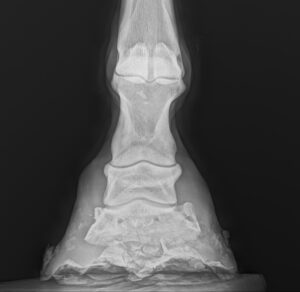
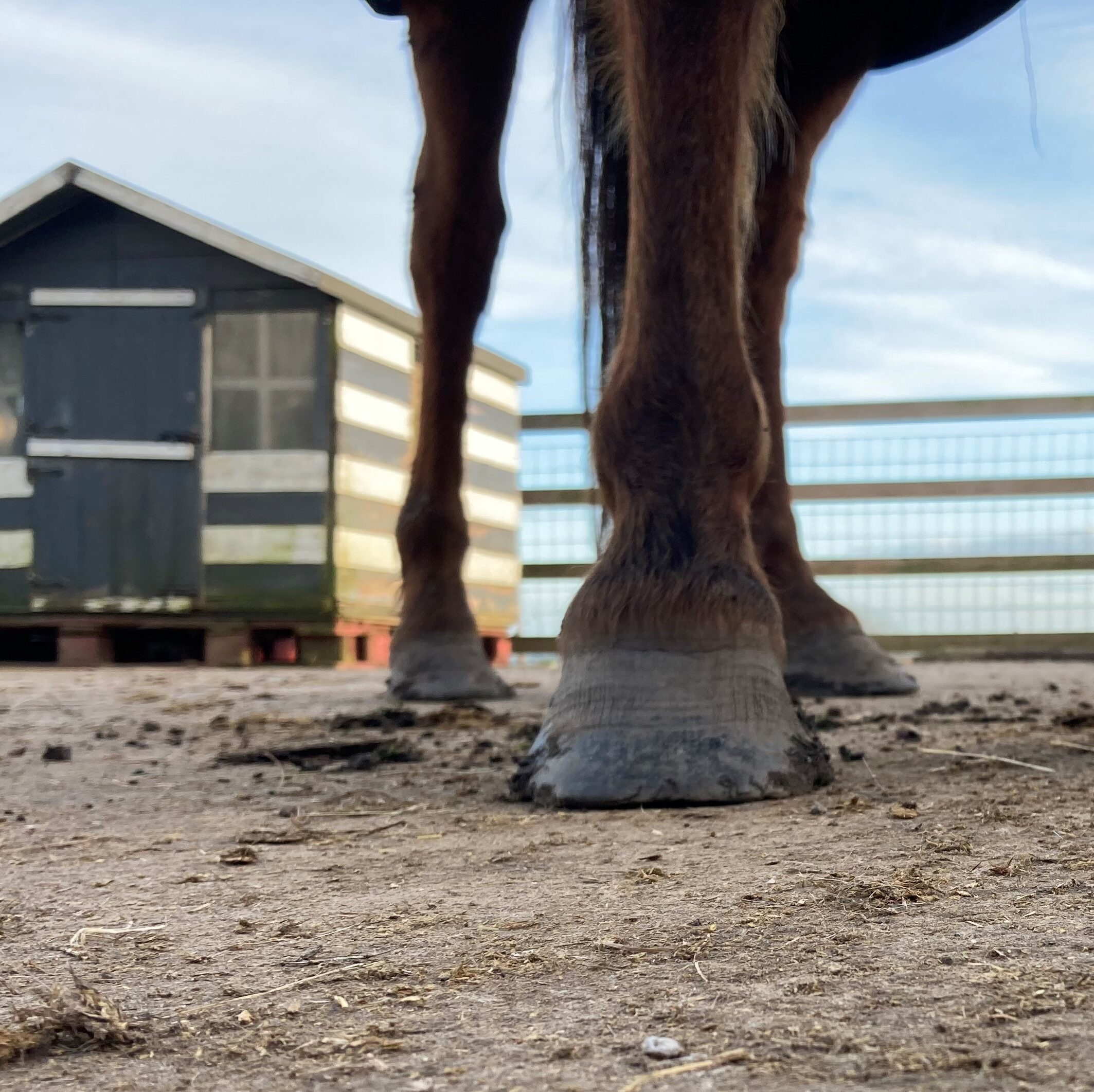
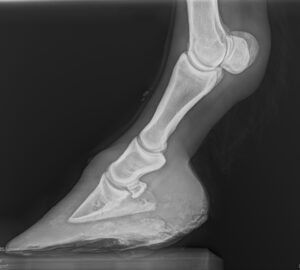
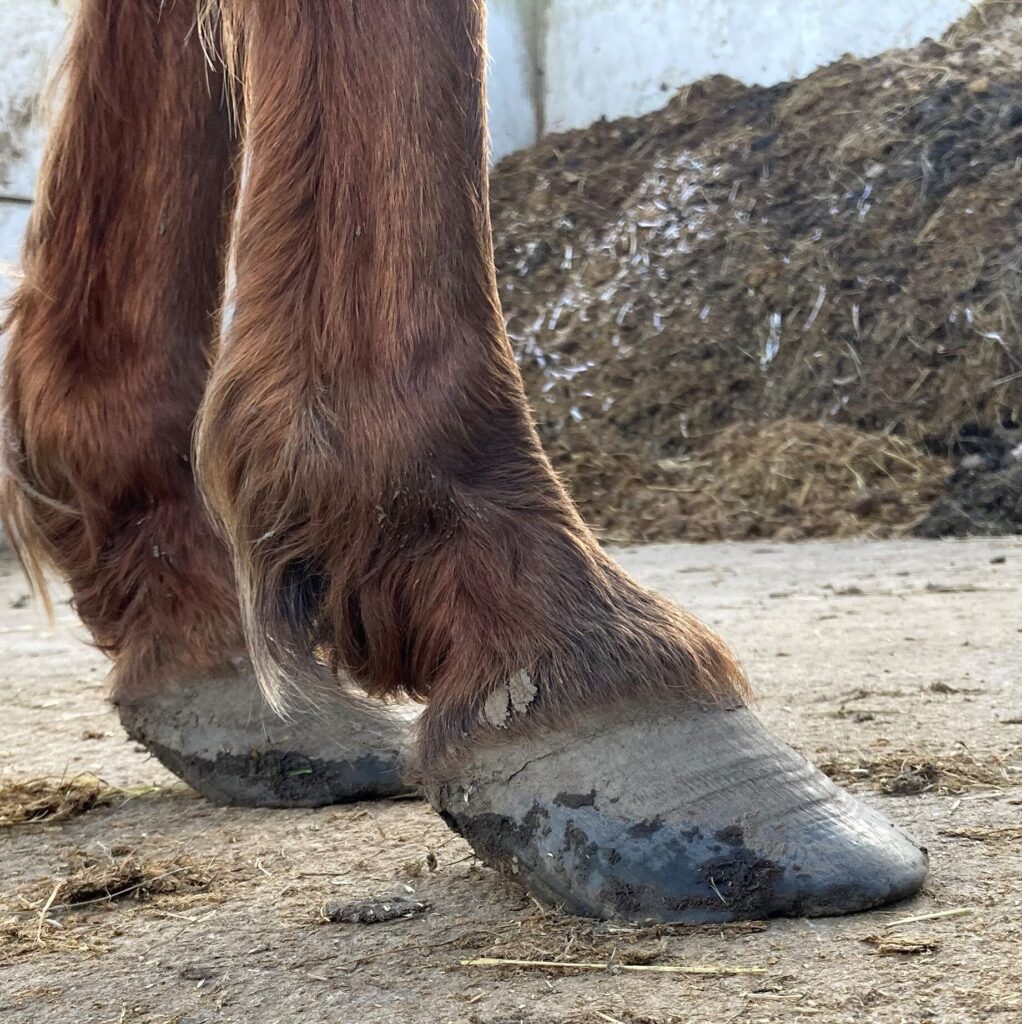
The photographs of this foot, show that this pony has a long toe but the balance of the foot looks reasonable if you look at the coronet band in relation to the ground. However the X-rays show that there is indeed a long toe in relation to the pedal bone but that also there is mild rotation and the Dorso -palmar view above shows that there is medio-lateral imbalance as the pedal bone is not level.
These imbalances will be putting strain on the deep digital flexor tendon that attaches to the back of the pedal bone and also on the soft tissues that support the pedal bone, the short and long pastern. If this pony was left like this and ridden on these feet for a prolonged length of time, it is likely that damage to the soft tissues could occur.
Keeping feet in balance helps to protect from long-term soft tissue injuries which can be hard to resolve such as navicular syndrome, and tears and strain to the deep digital flexor tendon where it attaches to the pedal bone. It can also cause collateral ligament damage which can keep your horse out of competitive action for quite some time.
It is important to keep your horses feet in good nick. This is a careful balance of regular visits from your farrier to ensure that the feet are kept in good balanced condition. If you have any questions on this blog do not hesitate to contact us at the office.

